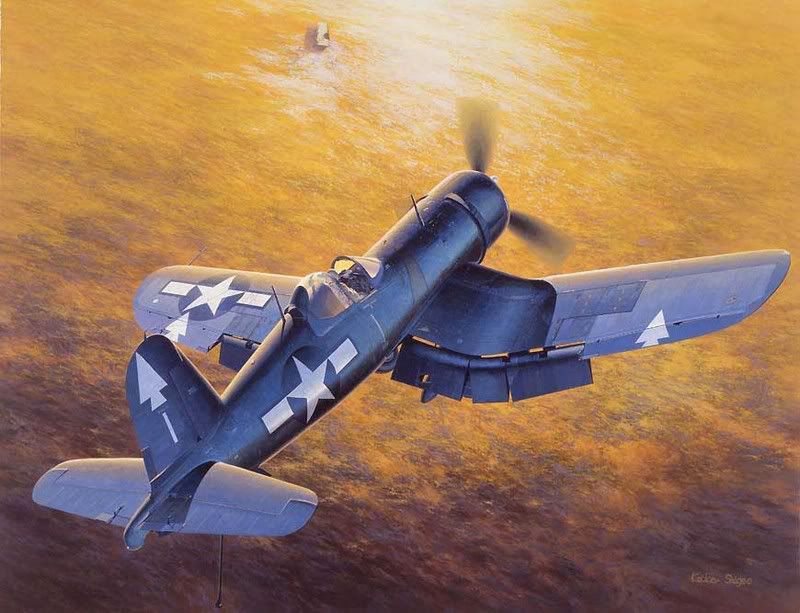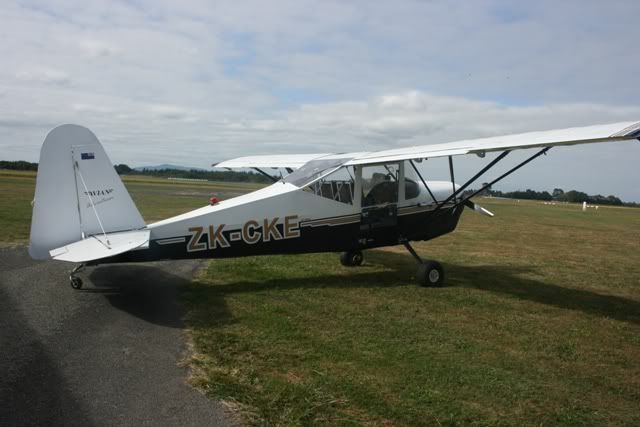Post by corsair67 on Nov 14, 2006 12:13:16 GMT 12
They breed them tough on the Left Coast! 
Copter pilot 'did his job'
14 November 2006
By SANDRA COX
A Greymouth helicopter pilot who landed his damaged aircraft on a West Coast beach last week while critically injured says he was just doing his job.
Paul Sutton, 30, was flying over coastal beaches just north of Punakaiki with three police officers.
Then his Robinson R44 struck a double-wire power line on Thursday, breaking the windshield.
A piece of 3cm-long wire shot into his side, but Sutton managed to bring the aircraft down on a tiny beach before twice moving it to safety from the incoming tide.
Sutton remains in Grey Base Hospital in a stable condition.
He told 3News last night that he did not see himself as a hero, but was "just doing a job and providing a service for the community".
"Physically, I just heard a blast noise and felt winded," Sutton said. "I was fine and walking after the incident."
None of his three passengers were injured.
Power to the lines had been shut down for maintenance which had been scheduled for the previous day but was delayed until Thursday.
Sutton's mother, Linda Sutton, said her son was annoyed about the accident.
"The accident was just unfortunate but he feels like he's let himself down."
The 3cm piece of copper wire remains embedded in Paul Sutton.
Surgeons have removed part of his bowel. He was expected to make a full recovery but would remain in hospital for some time. Doctors would wait till Sutton's condition improved further before considering again whether to remove the wire, thought to be in his spine.
Sutton was flying low to allow police investigating the death of a man found on a nearby beach a fortnight ago to examine the area. Power lines run alongside the State highway that follows the coast, and lead in and out of bush.
Linda Sutton said she had found several segments of wire in the helicopter cab and the passengers were lucky not to have been hit.
She found a 16cm-long segment beside the front-seat passenger and another behind the pilot seat, the same size as the piece that struck Paul Sutton.
"It's a dangerous job but he chooses to do it and does it to the best of his ability," Linda Sutton said. "He knows it's his bum on the seat so he's not going to be crazy."
Linda Sutton called for satellite marking of all wires. A West Coast pilot of 27 years, Chris Cowan, said most of the wires on the West Coast were not hard to identify.
"I know where most of them are, but you never know where they all are. Most of them aren't that hard to see if you know what you're looking for. You shouldn't be that low that you run into them really," he said.
Transport Accident Investigation Commission acting chief accident investigator Ken Mathews said the helicopter had been 16m to 20m above ground and travelling slowly

Copter pilot 'did his job'
14 November 2006
By SANDRA COX
A Greymouth helicopter pilot who landed his damaged aircraft on a West Coast beach last week while critically injured says he was just doing his job.
Paul Sutton, 30, was flying over coastal beaches just north of Punakaiki with three police officers.
Then his Robinson R44 struck a double-wire power line on Thursday, breaking the windshield.
A piece of 3cm-long wire shot into his side, but Sutton managed to bring the aircraft down on a tiny beach before twice moving it to safety from the incoming tide.
Sutton remains in Grey Base Hospital in a stable condition.
He told 3News last night that he did not see himself as a hero, but was "just doing a job and providing a service for the community".
"Physically, I just heard a blast noise and felt winded," Sutton said. "I was fine and walking after the incident."
None of his three passengers were injured.
Power to the lines had been shut down for maintenance which had been scheduled for the previous day but was delayed until Thursday.
Sutton's mother, Linda Sutton, said her son was annoyed about the accident.
"The accident was just unfortunate but he feels like he's let himself down."
The 3cm piece of copper wire remains embedded in Paul Sutton.
Surgeons have removed part of his bowel. He was expected to make a full recovery but would remain in hospital for some time. Doctors would wait till Sutton's condition improved further before considering again whether to remove the wire, thought to be in his spine.
Sutton was flying low to allow police investigating the death of a man found on a nearby beach a fortnight ago to examine the area. Power lines run alongside the State highway that follows the coast, and lead in and out of bush.
Linda Sutton said she had found several segments of wire in the helicopter cab and the passengers were lucky not to have been hit.
She found a 16cm-long segment beside the front-seat passenger and another behind the pilot seat, the same size as the piece that struck Paul Sutton.
"It's a dangerous job but he chooses to do it and does it to the best of his ability," Linda Sutton said. "He knows it's his bum on the seat so he's not going to be crazy."
Linda Sutton called for satellite marking of all wires. A West Coast pilot of 27 years, Chris Cowan, said most of the wires on the West Coast were not hard to identify.
"I know where most of them are, but you never know where they all are. Most of them aren't that hard to see if you know what you're looking for. You shouldn't be that low that you run into them really," he said.
Transport Accident Investigation Commission acting chief accident investigator Ken Mathews said the helicopter had been 16m to 20m above ground and travelling slowly









